

Master the lens to bring your creative vision to life across exciting roles and industries
5 min read
Turn ideas into incredible images and create the unexpected. With a BA (Hons) Photography degree, you’ll learn how to develop immersive and exciting visuals for people and society, across truly dynamic fields of work
Why study a photography degree?
1. Build a portfolio of work
Studying a photography degree means becoming a successful storyteller. You’ll learn how to capture moments of inspiration, tension and emotion. You’ll create aesthetics using concepts such as mood and narrative, alongside technical elements such as composition, lighting and advanced digital editing.
Whether you veer towards sport, fashion, science or a bit of everything, you’ll ultimately create a portfolio of work that demonstrates your ability and style.
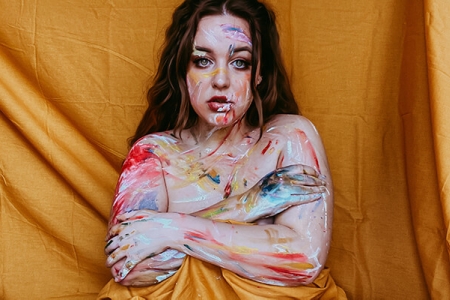
What studying Photography taught me is that anything you want to be, and anything you want to do, is possible. You just have to be able to back yourself up on it.
Aurora Way, BA (Hons) Photography 2021 graduate
2. Gain industry experience
When you study a photography degree, you’ll explore a wide range of fields to identify what you love – ready to share it with the world. This could be through theory, work experience and volunteering. Or through real client projects and industry talks with eminent speakers, as you’ll experience if you choose to study at Portsmouth.
Working in lively studio-based environments, you’ll also develop competency skills that are highly valued by employers. These include the ability to work and collaborate with others, strong observational and creative problem-solving skills and an openness to new influences and ideas.
3. Use your skills in all kinds of industries
Because photography degrees have a mixture of creative and technical skills, there are many options available to you when you graduate. You can work for a company, as a freelancer, or specialise in specific industries, such as wildlife, medical, sports, forensics and arts. You'll also be able to work commercially in areas like advertising, publishing and design.
Photography is a dynamic, transferrable subject that builds skills in areas like marketing, communications and graphic design. A photography degree ultimately allows you to pick the industry or sector that appeals to you, and find a career you’re truly passionate about.
Browse Photography student work
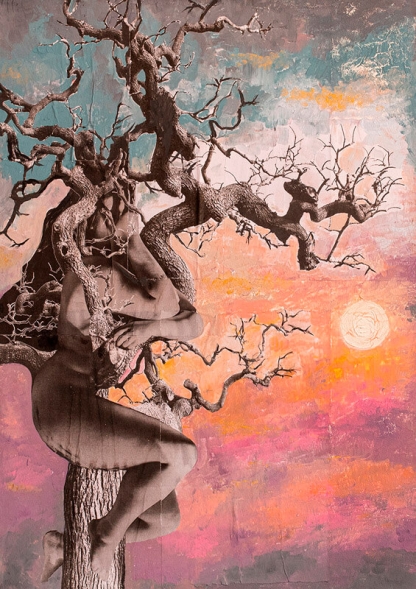
Aurora Way - do it cos you love it
'do it cos you love it' is a call to action for the people who have given up on doing what makes them happy, and it’s a reminder to myself to never apologise for the things that make me feel alive. During this series, I faced my fears of imperfection and of stepping 'out of my lane' as a photographer.
I photographed myself, bonded prints to canvases and painted over the top, shaded with charcoal and covered my skin in paint. Most importantly, I did this for the thrill of it. I revelled in the experience of art-making and released the fears of what this might look like to everyone else. I create because I love it, and in doing so, I’ve found a place for myself within it.
Read less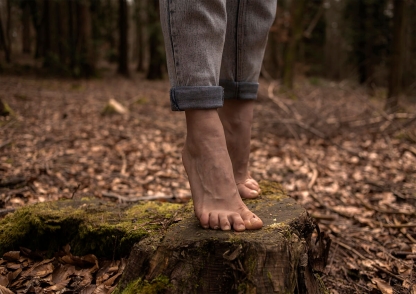
Charlotte Jones - The Best Days of Our Lives
The Best Days of Our Lives explores and documents the experiences of living by questioning the validity of this commonly used phrase.
Typically, when talking to the older generation, I am told I will look back on this time as the best in my life. However, I am often left hoping that this isn't true and I wonder if these are the best, then I don't want to see the worst.
Therefore, through this series of cinematic images I explore our collective vulnerabilities, developing a narrative that examines what it is that strips us of the potential to lead an authentic life and see beyond our individual space.
Read less
Dan Webb - Confined to Utopia
In a state of isolation and inability to explore the world, our minds begin to wander, and we reminisce of simpler times where there was no limit preventing us from venturing out. Yet, technology has allowed for a compromise, where we can roam streets and pathways of places we have never been, whether it's for entertainment or curiosity. Before anyone ever visits a new place, they might view maps or imagery around that place, in order to gain a better idea of what it might be like. Painting the scenery in a way which depicts a utopia, this work aims to capture the perfection found within imagery tied to holiday destinations.
Read less
Jacques Studley - Docklands
Docklands investigates the impact of global trade. The ways in which the environment has adapted and been affected by this trade, alongside the continued change in environment due to the constant movement of trade, is explored in the work.
The focus on a small port and its surroundings was intentional as trade is not limited to just the port but expands into the sea. Observing the lone ships roaming the seas on heavily calculated routes, yet seemingly aimless to the outside spectator, Docklands aims to expose the relationship between the relevance of global trade in the modern world and its environmental impact.
Read less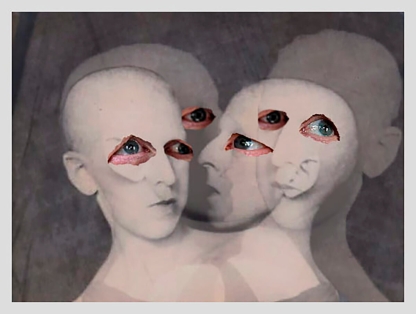
Liberty Abdey: A Warning From History
A Warning From History makes reference to the concept that life in itself is a cycle. Referencing the 1918 Flu pandemic as a mirror to Covid-19, it explores the idea that our current lives are a small segment of the human experience. Initially, experiences we go through may seem new, but in reality, these experiences have already happened and will continue to happen in the future. This collection acts as a reminder that if we do not align our priorities with nature, our cycle of humanity may come to an end.
Read less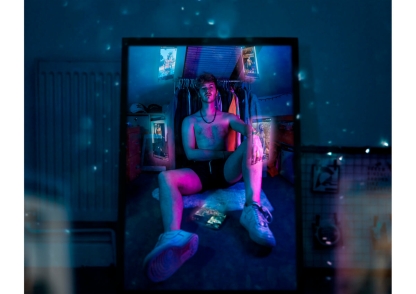
Iridescence is a social commentary that actualises social networking platforms, creating a fantasy existence where edits on how we look and the number of likes and followers have real-world worth. Iridescence removes the filters and exposes the effect social media is having on our lives; tackling issues such as body image, loneliness and screen addiction - and the composites create a character living within this 'utopia'.
The body of work follows their navigation online, visualising how online pressures affect their battles with self worth, confidence and sexuality. Using self-portraiture to visualise my views on social media, and juxtaposing soft imagery with a harsh, unfiltered reality, portrays the issues resulting from these platforms. I hope this work goes towards inspiring positive change.
Read less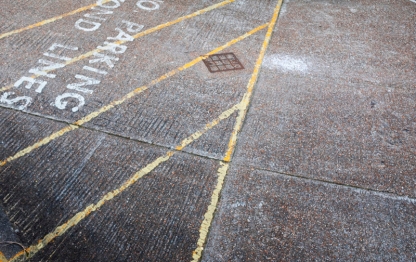
Jemma Elvin - Observe
This project emerged from a series of walks around my local area during the various national lockdowns throughout the COVID-19 pandemic, when we had the freedom to go outside for exercise. I used the camera as a mediator between myself as the observer and the intra-urban, and used these moments to document the various marks and evidence of human existence that caught my attention and that are prone to go unnoticed by others.
'Observe' is a body of work that touches on those banal traces of anonymous narratives that you witness as part of the daily norm. As the city constantly develops and changes, so does my photography and the imagery that inevitably follows alongside it, finding the beauty within the banal.
Read less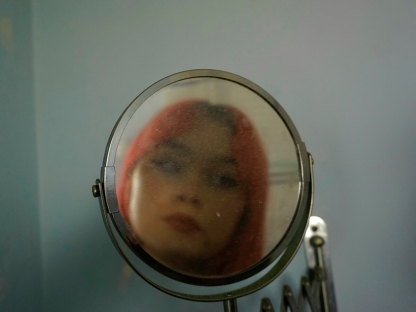
Zoe Everett-Taylor - Break The Habit, please.
In the recent 8 months, the urge to face notions of trauma and memory has been documented through the chosen medium of photography. Addressing issues such as addiction and loss has proven beneficial, as photographing became a vital form of therapy for my father and I. The returning visits to his home allowed a sense of trajectory to unfold. During the time of documenting, my father was admitted to hospital. His liver failure had taken a toll, and his body almost went into shock. The doctors told my father if he was to drink alcohol again, it would be fatal. Since then, he hasn't had any alcohol. "Break the Habit, please" allows the viewer to explore the emotions of witnessing post-destruct and sobriety first-hand through the daughter's eye.
Read less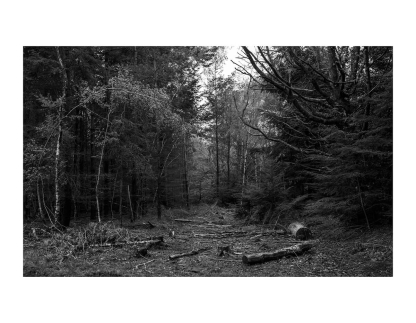
Zoe Everett-Taylor - Break The Habit, please.
What jobs can you do with a photography degree?
Our graduates have gone onto roles such as studio photographer, video directors, picture editors, photojournalists, curators, artists and fashion photographers.
Here are some of the jobs you can do with a photography degree, but don't restrict your choices to this list. You'll be graduating with strong artistic and technical skills to thrive as a professional – so think outside of the box, because opportunities are yours for the taking.
Advertising art director
As an art director, you’ll work on ideas for creating advertisements, setting the visual and overall tone of a campaign. Working with copywriters, designers, artists and photographers, you’ll manage client briefs and tell stories that bring customers on your journey with you.
Art directors are well-rewarded for their skillset, and could earn up to £120,000 as industry leaders at top advertising agencies.
Film/video editor
Fancy using your photography degree to go into the film and video industry? There are plenty of opportunities for managing materials such as camera footage, audio, sound effects and graphics. And in 2022, the filmed entertainment market, which includes cinema, streaming and TV is estimated to be worth over £100 billion.
So whether you choose to get involved in producing, editing or using strong arms and endless patience to be a camera person, you’ll be joining a growing industry with in-demand skills.
Graphic designer
Photos don’t always need to match what you saw. If you prefer the technology side of design, consider the life of a graphic designer.
Draw, paint, dabble and doodle with digital brushes and turn your work into anything. Use software to create logos, posters and more based on the client’s brief. Average salaries are also above the UK national average, according to Glassdoor, at around £27,771.
Magazine features editor
A feature is the big piece of the puzzle inside a magazine. As editor, your job will be to ensure the feature is topical, engaging and accurate. You’ll use your precision for detail and the skills learnt in your degree to oversee artwork, design and photography. You might even attend photo shoots or edit pages before going to press.
Features editors earn an average of £37,566, which is £10,000 above the UK national average.
Medical illustrator
Interested in anatomy? Then a career in medical illustration could be for you. Use technical skills from studying photography to produce images for professionals working in patient care, education and research. That could be within the NHS, or for a company specialising in medical art and clinical photography.
Photographer
Photography speaks. So put all your photography skills to use as a freelancer or in an organisation. Use the knowledge you gain of handling client briefs from your photography degree to deliver the images people need.
That could be in a variety of areas, such as sport, travel, forensics, fashion, weddings and portraiture photography. A photography degree will ultimately give you the freedom to follow wherever your lens and imagination take you.
After graduating, I intend on taking the skills I have learned at university and applying them to real world situations. I’m currently looking for freelance work in London and the surrounding areas while focusing on working as an assistant with photographers based there.
Oliver Whitehead, BA (Hons) Photography
